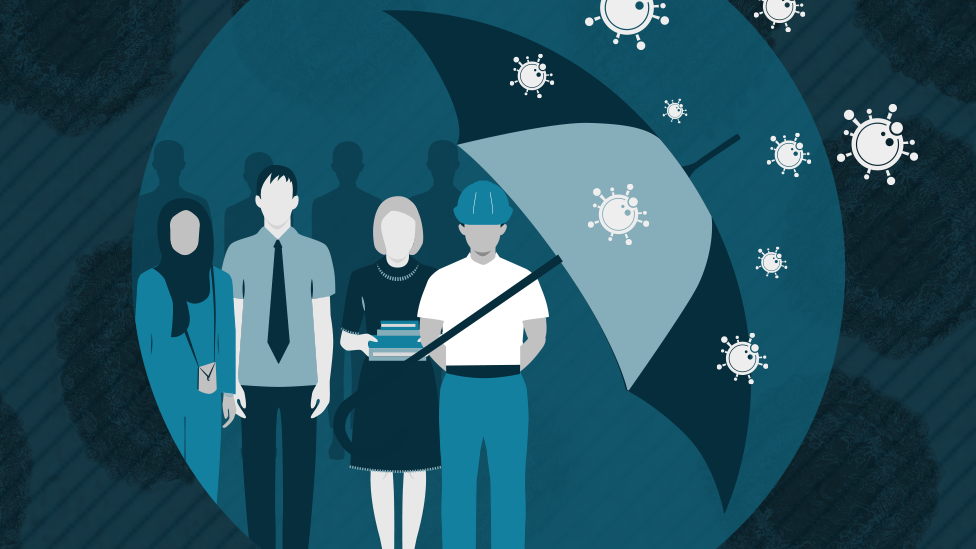Covid-19: UK furlough scheme ends but impact on NI workers unclear
- Published
- comments
End of furlough: 'The scheme was a godsend'
The UK's furlough scheme ends on Thursday but the impact on Northern Ireland workers is unclear.
The most recent official figures show that at the end of July, 36,000 people in Northern Ireland were still using the scheme.
The number has likely come down since then.
Furloughed workers will either retain a job with their employer, find new work, start claiming universal credit or leave the labour force.
The furlough scheme involved the government helping to pay the wages of people who could not work due to the coronavirus pandemic.
Last week, Stormont's Finance Minister Conor Murphy wrote to the chancellor urging him to extend the scheme beyond the end of September to help support businesses and workers.
The Sinn Féin minister said: "The approach taken by the British government is in contrast to the Irish government which is keeping its Employment Wage Subsidy Scheme in place until at least the end of December.
"This disparity of wage support across the island of Ireland could particularly impact businesses operating in border counties, especially in our hospitality and retail sectors who still continue to rely on these jobs support schemes, north and south."
Roger Pollen of the Federation of Small Businesses said the furlough scheme had been "a really effective tool for managing an extraordinary situation".
"The good thing is at least this scheme is coming to an end at a time when there are a lot of jobs available in the economy - that is probably unusual but is very welcome," he told BBC Radio Foyle.
But large parts of the economy remain under intense pressure, including the hospitality sector, he said.
Many businesses, he added, are concerned by the prospect of any further form of lockdown.
"I think many businesses are concerned by the noises coming from the executive because there is a complete lack of clarity as to what they are expecting for business," he said.
Damian Murphy, from the Association of NI Travel Agents, which represent about 700 people in the sector, said further support was needed for travel agencies.
"We're not in a position where we need all our staff back, nor are a lot of our agencies in a position where they can afford to make staff redundant," he told the BBC's Good Morning Ulster programme.
"A lot of people are in discussions about bringing staff back on reduced hours, delaying their comeback or even unpaid leave in some cases."
Mr Murphy said problems for travel agents are likely to persist until the end of the year.
Of the 36,000 people on furlough at the end of July, about half were on flexible furlough meaning they were able to work some of the time.
The largest number (6,400) of furloughed workers at that time was in the retail sector (6,400), followed by hospitality (5,500).
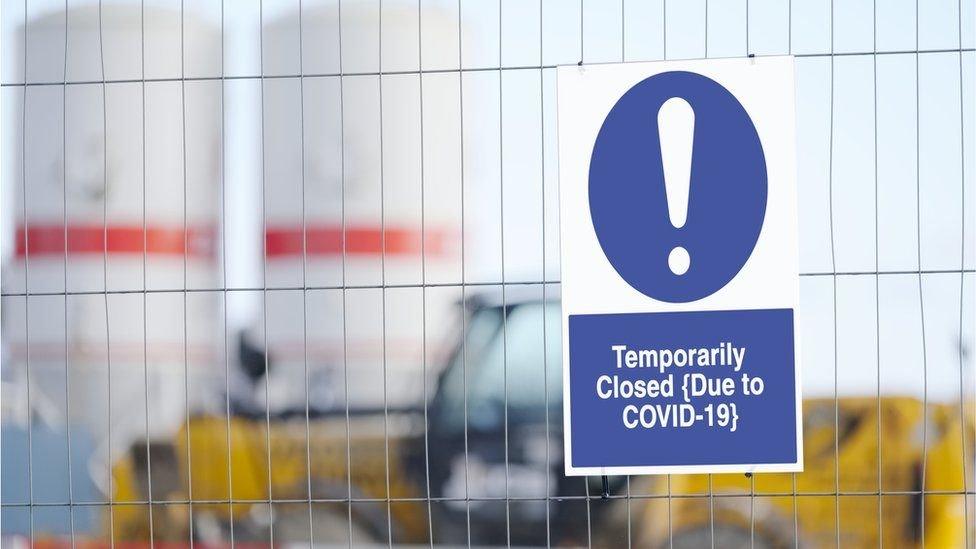
Almost 140,000 workers were furloughed in Northern Ireland at the scheme's peak
The scheme was introduced in the spring of 2020 to stop people from being laid off by their employers during the lockdown.
The government paid 80% of the wages of people who could not work or whose employers could no longer afford to pay them - up to a monthly limit of £2,500.
In July, the government reduced its contribution to 70% of wages with employers paying 10%.
In August and September, the government contribution was 60% with the employer proportion rising to 20%.
The jobs market recovery has reduced fears that the end of the scheme will not lead to large scale job losses.
Company payrolls in Northern Ireland continued to increase even as the scheme began to taper and the number of redundancies being notified to the Department for the Economy has been low in recent months.

'No furlough, no money'
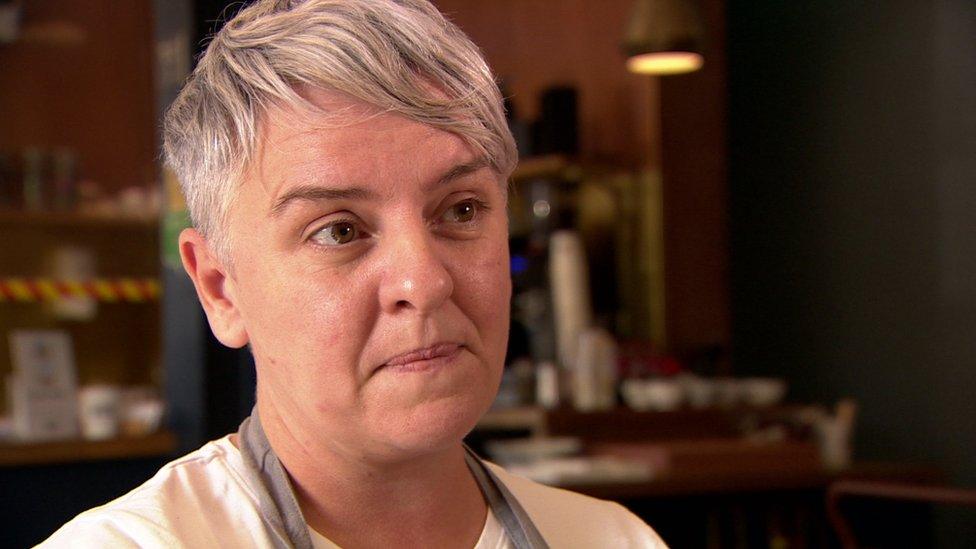
Seaneen Monaghan, a caterer, said furlough gave certainty to her and her family
When the first Covid-19 lockdown descended 18 months ago, caterer Seaneen Monaghan was in the same boat as so many thousands of others - left to anxiously wonder about what may happen to her and her family at a time when neither she nor her husband could go to work.
"You didn't know where you stood at the time," she said.
"My husband and I, being in the same industry, we didn't know what we were going to do."
So when the furlough scheme was announced, it was a "blessing".
She said that "80% of our wage was better than not getting anything at all.
"We still had to cut back and we missed that extra 20% but we got there in the end."
For Mrs Monaghan's employers, the furlough scheme meant some certainty during some of the most unpredictable weeks of the pandemic.
But she remains concerned about what could yet come without the scheme.
"If there was another lockdown, this industry would be the first one to close - and if there's no furlough scheme, there's no money."

'Furlough was a godsend'
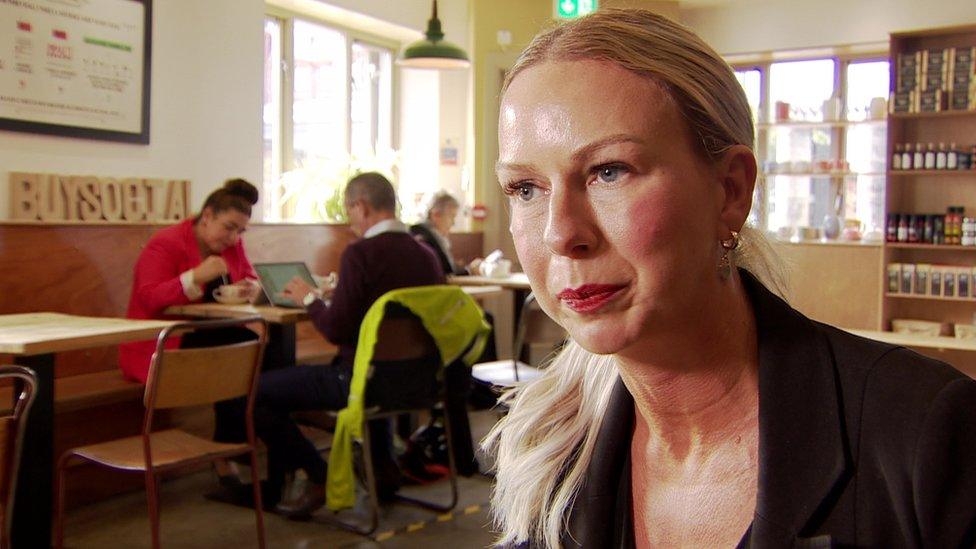
Diane Hill said furlough, and later the ability to bring some staff back as the scheme evolved, saved the business
For Diane Hill, who is director of business and organisation development at Now Group, which runs Loaf Catering, "furlough was a godsend for us".
"And then when we went to being able to bring people back but were were changing our business - doing outside catering, home deliveries - we couldn't project how that business would be," she said.
"So having flexi-furlough so that we could bring people back and give them assurances that we would continue and give them an income from ourselves, as well as being able to flex around their personal lives - it's the reason we're still here today."
- Published14 September 2021
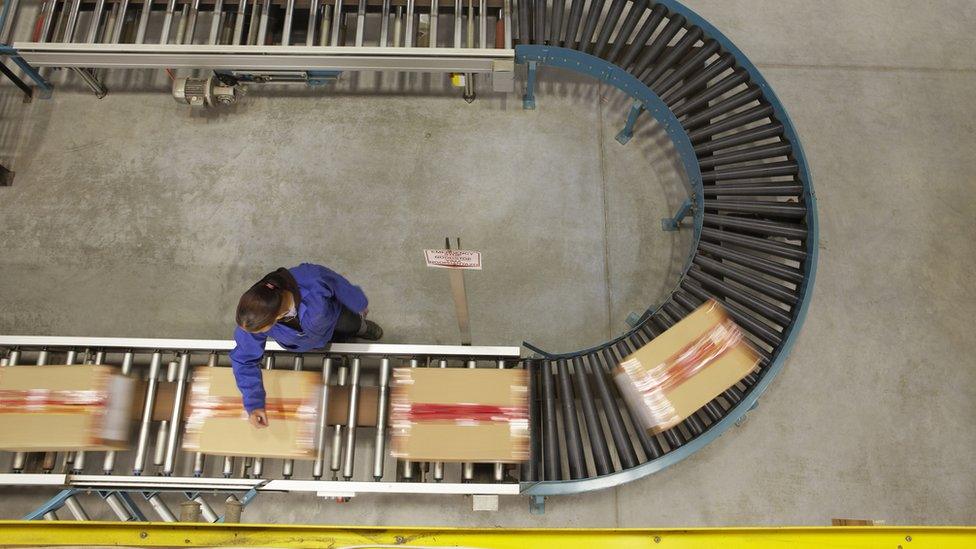
- Published29 July 2021
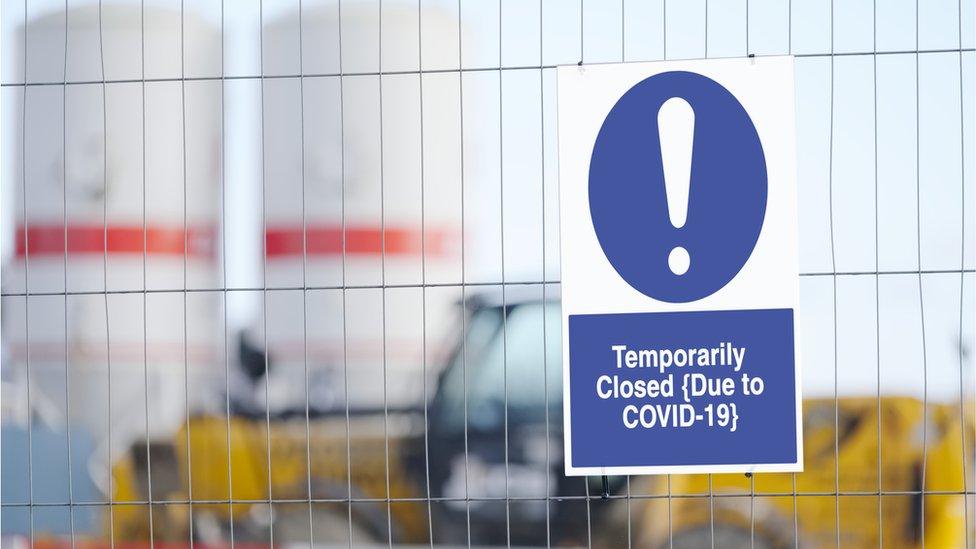
- Published30 September 2021
